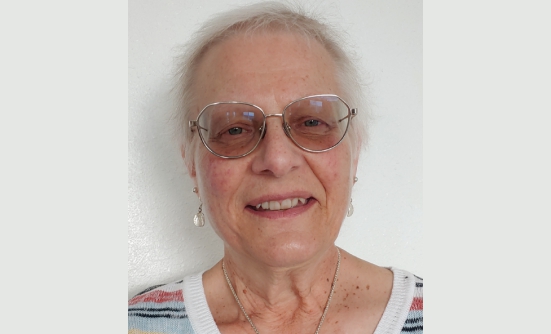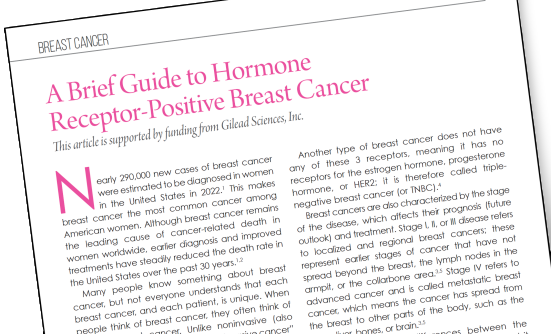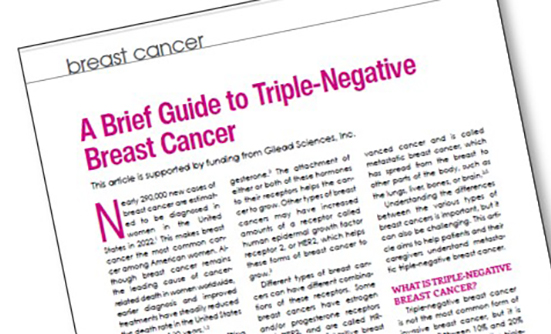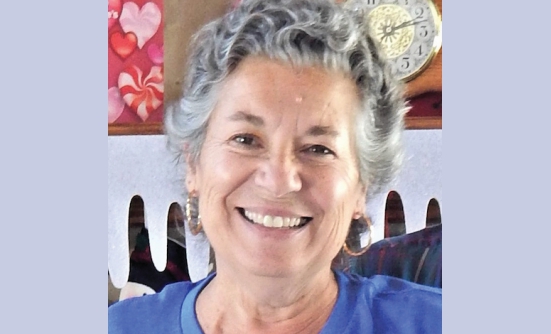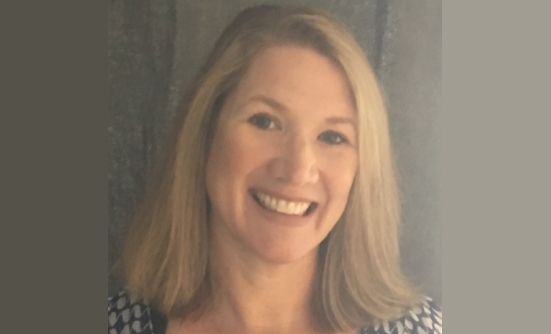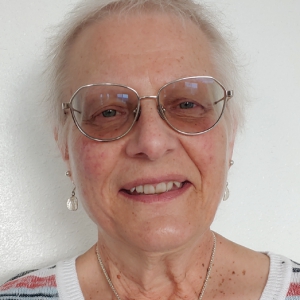
In 1999, at age 45, I was diagnosed with stage II ductal carcinoma in situ of the right breast. My treatment plan involved 6 months of chemotherapy, plus 7 weeks of radiation. In addition, I had 3 breast surgeries to attempt to remove the cancer at the margins, which were unsuccessful.
Ongoing Treatment and Genetic Testing
After this initial treatment ended, my oncologist prescribed tamoxifen for me, but discontinued it before the 5-year mark, because of the drug’s side effects, which led to a hysterectomy. He then prescribed an aromatase inhibitor instead, and I continued using that drug for many years.
In 2000, I elected to have genetic testing to see if my cancer involved the BRCA1 or BRCA2 mutation. I thought that it was important information to have, for my extended family, and for helping my oncologist to determine what was the best treatment option based on these test results. The results came back negative, meaning that I did not have this genetic alteration.
Metastatic Disease
In 2003, the cancer metastasized to the bone for the first time. For 10 years, the cancer remained in remission, and I was still using the oral aromatase inhibitor. Then, in 2013, a second bone metastasis was diagnosed. Since then, I have received several treatment options to control these bone metastases.
Pharmaceutical research has afforded many millions of breast cancer survivors the option of using oral aromatase inhibitor therapy. I was one of the people who took advantage of this oral option, which significantly added to the quality of life of my everyday living instead of using intravenous infusion of chemotherapy. I continued using an oral aromatase inhibitor for a total of 16 years.
The Survivorship Dilemma
As the years passed, I’ve had many mixed emotions regarding my survivorship. Obviously, I’ve been rewarded with more than 22 years of living a blessed life. Each day is a precious gift full of family and friends. However, I have also felt the loss of many people whom I have outlived. With each loss, it means coming to terms with my own mortality—realizing the risks associated with long-term, continued treatment for cancer.
For many people diagnosed with cancer, such as me, standardized care has become increasingly ineffective. With more than 70% of breast cancer cases having an over-expression of hormone receptors, many long-term survivors are facing a new challenge of endocrine resistance (their cancer stops responding to endocrine therapy). Thanks to research and clinical trials, however, many new drugs are being developed to address this issue.
In my case, aromatase inhibitors, along with chemotherapy and radiation, have helped me get to the long-term survivor category. My personal rewards have been many. To continue on this journey, I must now accept the risks that are inherent in clinical trials. It is a risk I’m willing to explore.
Clinical Trials
Recently, I committed to joining a phase 1 clinical trial to address my body’s resistance to conventional treatments for metastatic breast cancer. This approach offers simultaneous risks and rewards. In my opinion, the rewards far outweigh the obvious risks.
The risks are mainly from the new drug’s potential side effects, which are not fully known in a phase 1 clinical trial, which investigates the safety of a drug. In addition, another complication may be if you live far away from where the clinical trial is being conducted, and if you have a life-threatening reaction to the study drug, getting the appropriate emergency care may be risky and more complicated the farther away from home the patient is. I currently travel 4.5 hours each way for the clinical trial.
Regardless of the outcome, my participation will also help newly diagnosed and long-term warriors in the fight against breast cancer. It is my hope that someday the “R and R” of risks and rewards can translate to mean “rest and relaxation” without cancer!





